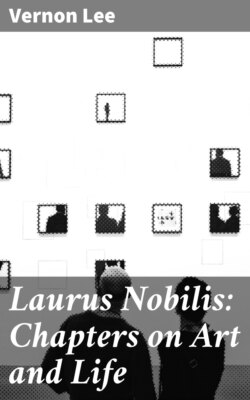Читать книгу Laurus Nobilis: Chapters on Art and Life - Vernon Lee - Страница 27
На сайте Литреса книга снята с продажи.
IV.
ОглавлениеAnd here comes in the immense importance of Art as a type of pleasure: of Art in the sense of æsthetic appreciation even more than of æsthetic creation; of Art considered as the extracting and combining of beauty in the mind of the obscure layman quite as much as the embodiment of such extracted and combined beauty in the visible or audible work of the great artist.
For experience of true æsthetic activity must teach us, in proportion as it is genuine and ample, that the enjoyment of the beautiful is not merely independent of, but actually incompatible with, that tendency to buy our satisfaction at the expense of others which remains more or less in all of us as a survival from savagery. The reasons why genuine æsthetic feeling inhibits these obsolescent instincts of rapacity and ruthlessness, are reasons negative and positive, and may be roughly divided into three headings. Only one of them is generally admitted to exist, and of it, therefore, I shall speak very briefly, I mean the fact that the enjoyment of beautiful things is originally and intrinsically one of those which are heightened by sharing. We know it instinctively when, as children, we drag our comrades and elders to the window when a regiment passes or a circus parades by; we learn it more and more as we advance in life, and find that we must get other people to see the pictures, to hear the music, to read the books which we admire. It is a case of what psychologists call the contagion of emotion, by which the feeling of one individual is strengthened by the expression of similar feeling in his neighbour, and is explicable, most likely, by the fact that the greatest effort is always required to overcome original inertness, and that two efforts, like two horses starting a carriage instead of one, combined give more than double the value of each taken separately. The fact of this æsthetic sociability is so obvious that we need not discuss it any further, but merely hold it over to add, at last, to the result of the two other reasons, negative and positive, which tend to make æsthetic enjoyment the type of unselfish, nay, even of altruistic pleasure.
